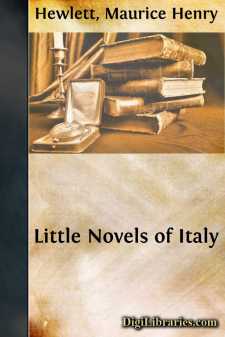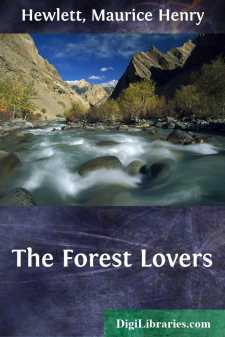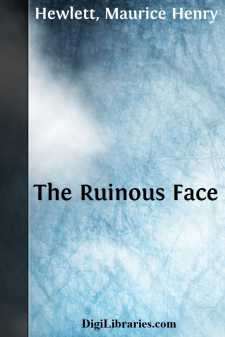Categories
- Antiques & Collectibles 13
- Architecture 36
- Art 48
- Bibles 22
- Biography & Autobiography 816
- Body, Mind & Spirit 145
- Business & Economics 28
- Children's Books 17
- Children's Fiction 14
- Computers 4
- Cooking 94
- Crafts & Hobbies 4
- Drama 346
- Education 58
- Family & Relationships 59
- Fiction 11834
- Foreign Language Study 3
- Games 19
- Gardening 17
- Health & Fitness 34
- History 1378
- House & Home 1
- Humor 147
- Juvenile Fiction 1873
- Juvenile Nonfiction 202
- Language Arts & Disciplines 89
- Law 16
- Literary Collections 686
- Literary Criticism 179
- Mathematics 13
- Medical 41
- Music 40
- Nature 179
- Non-Classifiable 1768
- Performing Arts 7
- Periodicals 1453
- Philosophy 66
- Photography 2
- Poetry 897
- Political Science 203
- Psychology 45
- Reference 154
- Religion 516
- Science 126
- Self-Help 85
- Social Science 82
- Sports & Recreation 34
- Study Aids 3
- Technology & Engineering 59
- Transportation 23
- Travel 463
- True Crime 29
Maurice Henry Hewlett
Maurice Henry Hewlett was an English historical novelist and poet, best known for his romantic and adventurous tales set in medieval times. His most famous work, "The Forest Lovers" (1898), showcases his fascination with chivalry and the Middle Ages. Hewlett's vivid storytelling and rich descriptions garnered him a significant readership in the late 19th and early 20th centuries.
Author's Books:
Sort by:
OF COUNT RICHARD, AND THE FIRES BY NIGHT I choose to record how Richard Count of Poictou rode all through one smouldering night to see Jehane Saint-Pol a last time. It had so been named by the lady; but he rode in his hottest mood of Nay to that, yet careless of first or last so he could see her again. Nominally to remit his master's sins, though actually (as he thought) to pay for his own, the...
more...
O what is this you've done to me,Or what have I done,That bare should be our fair roof-tree,And I all alone?'Tis worse than widow I becomeMore than desolate,To face a worse than empty homeWithout child or mate.'Twas not my strife askt him his lifeWhen it was but begun,Nor mine, I was a new-made wifeAnd now I am none;Nor mine that many a sapless ghostWails in sorrow-fare—But this does...
more...
PROEMSing of the end of Troy, and of that floodOf passion by the bloodOf heroes consecrate, by poet's craftHallowed, if that thin waftOf godhead blown upon thee stretch thy songTo span such store of strongAnd splendid vision of immortal themesLate harvested in dreams,Albeit long years laid up in tilth. Most meetThou sing that slim and sweetFair woman for whose bosom and delightParis, as well he...
more...
VANNA IS BID FOR Not easily would you have found a girl more winning in a tender sort than Giovanna Scarpa of Verona at one and twenty, fair-haired and flushed, delicately shaped, tall and pliant, as she then was. She had to suffer her hours of ill report, but passes for near a saint now, in consequence of certain miracles and theophanies done on her account, which it is my business to declare; before...
more...
CHAPTER I PROSPER LE GAI RIDES OUT My story will take you into times and spaces alike rude and uncivil. Blood will be spilt, virgins suffer distresses; the horn will sound through woodland glades; dogs, wolves, deer, and men, Beauty and the Beasts, will tumble each other, seeking life or death with their proper tools. There should be mad work, not devoid of entertainment. When you read the word...
more...
INTRODUCTION The top-heavy, four-horsed, yellow old coach from Vicenza, which arrived at Padua every night of the year, brought with it in particular on the night of October 13, 1721, a tall, personable young man, an Englishman, in a dark blue cloak, who swang briskly down from the coupe and asked in stilted Italian for "La sapienza del Signer Dottor' Lanfranchi." From out of a cloud of...
more...
THE RUINOUS FACE When the siege of Troy had been ten years doing, and most of the chieftains were dead, both of those afield and those who held the walls; and some had departed in their ships, and all who remained were leaden-hearted; there was one who felt the rage of war insatiate in his bowels: Menelaus, yellow-haired King of the Argives. He, indeed, rested not day or night, but knew the fever...
more...
ONSLOW SQUARE This is a romantic tale. So romantic is it that I shall be forced to pry into the coy recesses of the mind in order to exhibit a connected, reasonable affair, not only of a man and his wife prosperously seated in the mean of things, nel mezzo del cammin in space as well as time—for the Macartneys belonged to the middle class, and were well on to the middle of life themselves—, but of...
more...
IN A GREEN SHADE ROUND ABOUT A PREFACE The title has become equivocal, since there are more green shades in employment now than were dreamed of by Andrew Marvell. Science is a great maker of homophones, without respect for the poets. There is, for instance, the demilune of lined buckram borne by the weak-eyed on their foreheads, the phylactery of the have-beens—I lay myself open to be believed a...
more...
This tale is founded upon two sagas, which have been translated literally and without attempt to accord their discrepancies by York Powell and Vigfussen in their invaluable Origines Icelandicae. As well as those versions I have had another authority to help me, in Laing's Sea-Kings of Norway. I have blent the two accounts into one, and put forward the result with this word of explanation, which I...
more...











